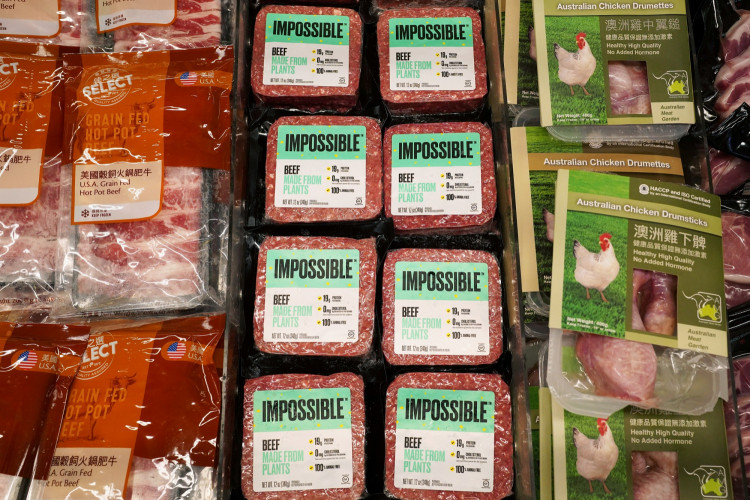Plant-based artificial meat producer Impossible Foods is launching products in Singapore and Hong Kong. The company said Tuesday it had placed its beef products, called Impossible Beef, in more than 200 grocery stores across the two cities.
The move is part of the company's Asian expansion strategy, with the goal of grabbing more market share in the region. The launch of its "fake" beef products is its first retail foray outside of the United States. It also comes just a week after its Hong Kong-based competitor Omnifoods made its artificial luncheon meats available in hundreds of McDonald's restaurants across Macao and Hong Kong.
Impossible Foods' products have been available in select restaurants across Hong Kong and Macao since last year. In Hong Kong and Macao, the company's products are already part of the menu for about 700 restaurants. In Singapore, at least 550 eateries are offering its products to customers.
The decision to make its products available at retail outlets comes amid a shift away from in-store dining to home cooking due to the coronavirus pandemic. Impossible Foods stated that the pandemic has accelerated its plans to place its products on grocery shelves outside the U.S.
"When we saw the impact COVID was going to have on restaurants...it affected our timetable a lot. We were going to do it anyway, but we put a lot more effort into it," the company's chief executive officer and founder, Patrick Brown, said in a virtual news briefing Tuesday.
Consumers interested in trying out the company's artificial beef products can visit ParknShop stores in Hong Kong and FairPrice stores in Singapore. Through its partner retailers, the company is also offering delivery services for consumers who do not want to physically visit the stores.
According to analysts at AT Kearney, the market share of artificial meats in the wider global meat market is expected to grow to about 10% by 2025. The entire industry, which is expected to grow to $1.2 trillion over the next five years, is now gradually shifting to greener options as consumers become more environmentally-aware, analysts say.






